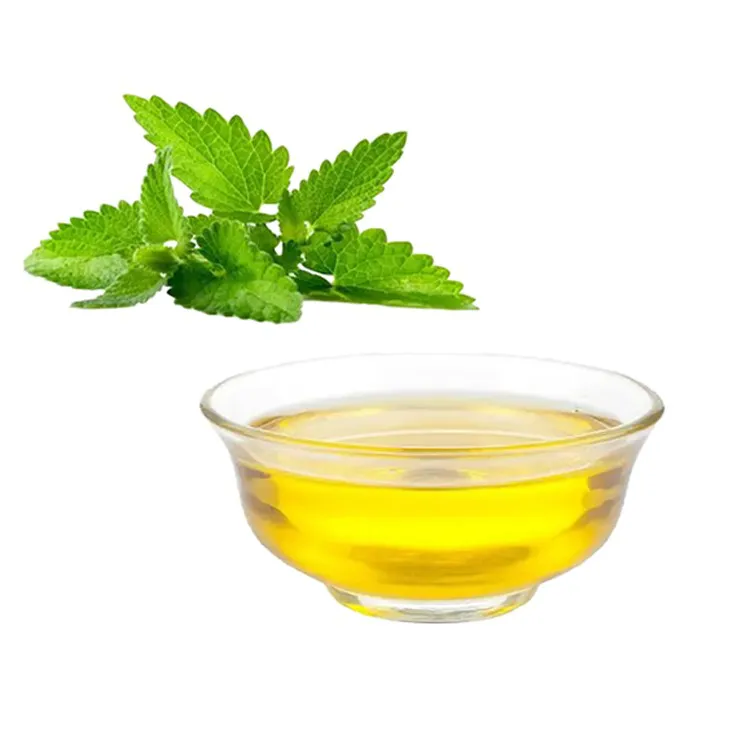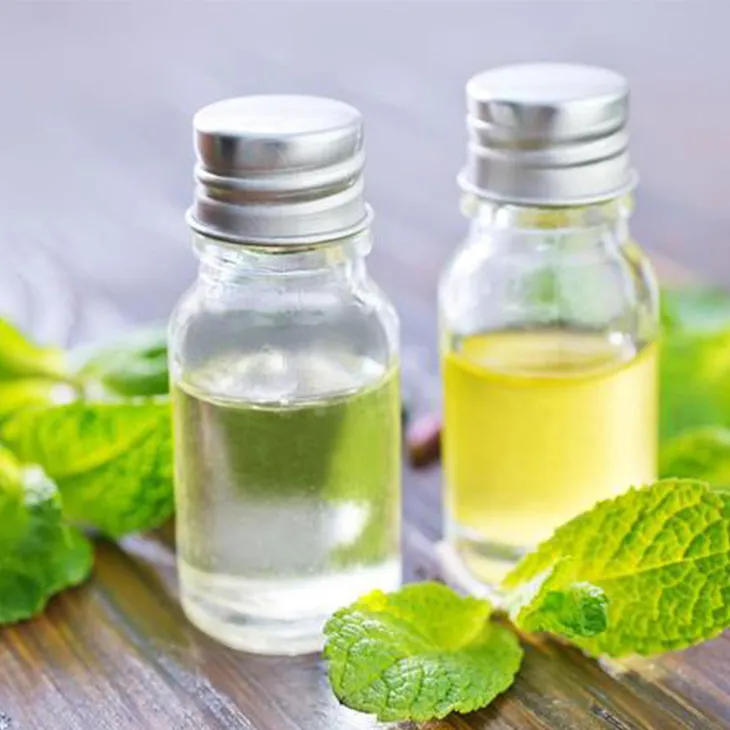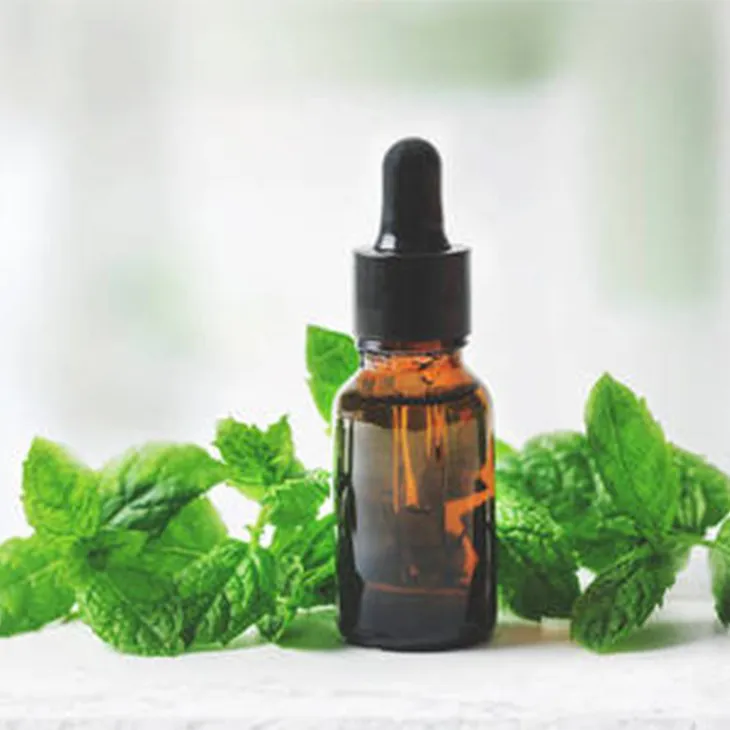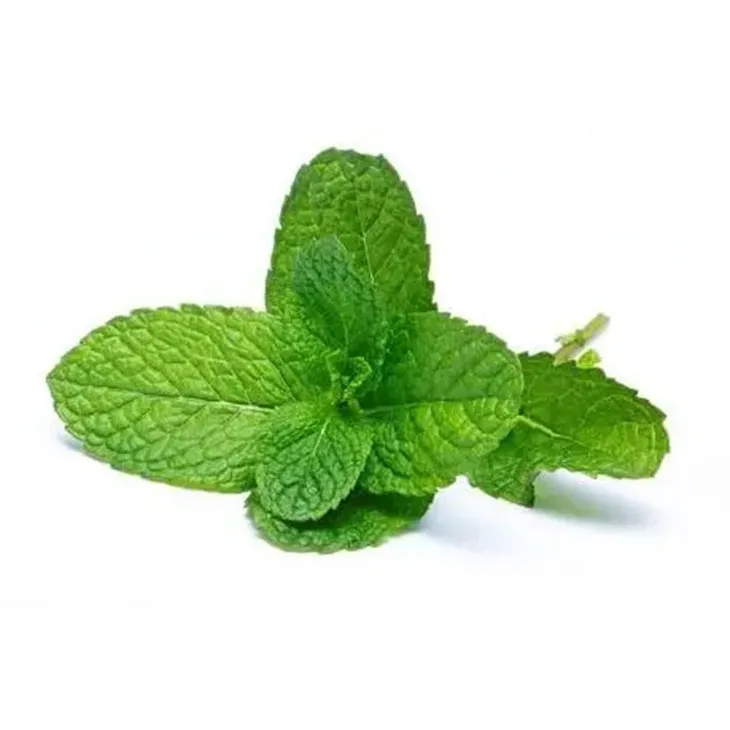- 0086-571-85302990
- sales@greenskybio.com
Understand the Benefits of Peppermint Oil Supplements.
2024-11-12

Introduction
Peppermint Oil supplements have been gaining popularity in recent years due to their numerous potential health benefits. Derived from the peppermint plant (Mentha × piperita), Peppermint Oil contains a variety of active compounds that can positively impact different aspects of our well - being. In this article, we will explore the many advantages of Peppermint Oil supplements in detail.

Digestive Benefits
One of the most well - known benefits of peppermint oil is its positive effect on digestion. Peppermint oil stimulates the production of digestive enzymes, which are crucial for breaking down food and facilitating better nutrient absorption.
When we consume food, our body needs to break it down into smaller components in order to extract the necessary nutrients. Digestive enzymes play a key role in this process. Peppermint oil can help enhance the activity of enzymes such as lipase, amylase, and protease. For example, lipase helps in the digestion of fats, amylase is involved in breaking down carbohydrates, and protease is responsible for protein digestion.
Peppermint oil also has a relaxing effect on the muscles of the gastrointestinal tract. This can be particularly beneficial for individuals who suffer from digestive disorders such as irritable bowel syndrome (IBS). In IBS, the muscles in the intestines may contract abnormally, leading to symptoms like abdominal pain, bloating, and diarrhea or constipation. The muscle - relaxing property of peppermint oil can help to relieve these symptoms and improve overall digestive comfort.
Moreover, peppermint oil can help to increase the flow of bile. Bile is a fluid produced by the liver and stored in the gallbladder. It plays an important role in the digestion and absorption of fats. By promoting bile flow, peppermint oil can assist in the proper digestion of fatty foods, preventing indigestion and discomfort.

Oral Health Benefits
Peppermint oil also offers several benefits for oral health. It has antibacterial action against oral bacteria, which is essential for maintaining good oral hygiene.
Our mouths are home to a large number of bacteria. Some of these bacteria can cause problems such as tooth decay, gum disease, and bad breath. Peppermint oil can help to combat these harmful bacteria. The antibacterial properties of peppermint oil can inhibit the growth and activity of bacteria such as Streptococcus mutans, which is one of the main culprits behind tooth decay.
In addition to its antibacterial action, peppermint oil can also freshen breath. Bad breath, or halitosis, can be an embarrassing problem for many people. Peppermint oil's pleasant minty flavor can mask unpleasant odors in the mouth, leaving the breath smelling fresh. It can also stimulate saliva production. Saliva is important for maintaining oral health as it helps to wash away food particles and bacteria, neutralize acids in the mouth, and remineralize teeth.

Pain Relief Benefits
Peppermint oil supplements can play a role in pain relief. They may be effective in alleviating headaches and muscle pain due to their cooling and soothing nature.
When it comes to headaches, peppermint oil can be used in several ways. It can be applied topically to the temples or forehead. The cooling sensation of peppermint oil can help to relieve the pain associated with headaches. Some studies have suggested that peppermint oil may have a vaso - constrictive effect, which means it can cause the blood vessels in the head to narrow. This may be beneficial for certain types of headaches, such as tension headaches, where blood vessels may be dilated.
For muscle pain, peppermint oil can be massaged into the affected area. The menthol in peppermint oil gives it a cooling and analgesic effect. It can penetrate the skin and reach the underlying muscles, providing relief from pain and inflammation. This can be especially useful for athletes or people who engage in regular physical activity and may experience muscle soreness or strains.
Peppermint oil may also have potential benefits for other types of pain, such as joint pain. However, more research is needed in this area to fully understand its effectiveness.

Skin Health Benefits
Another important aspect of peppermint oil is its potential to enhance skin health. When applied topically or taken internally, it can help with skin conditions like acne and inflammation.
For acne, peppermint oil has antibacterial and anti - inflammatory properties. Acne is often caused by a combination of factors, including the overgrowth of Propionibacterium acnes, an increase in sebum production, and inflammation. Peppermint oil can help to combat the bacteria associated with acne, reduce inflammation, and regulate sebum production. However, it should be used with caution on the skin, as it can be irritating in high concentrations.
Peppermint oil can also be beneficial for skin inflammation in general. It can soothe irritated skin and reduce redness. For example, in cases of eczema or dermatitis, peppermint oil may provide some relief when used appropriately. When taken internally, peppermint oil may also have a positive impact on skin health from the inside out by promoting overall health and reducing inflammation in the body.
Other Potential Benefits
There are some other potential benefits associated with peppermint oil supplements.
- Respiratory Health: Peppermint oil may have a decongestant effect. It can help to clear the nasal passages and relieve congestion in the sinuses. This can be beneficial for people with colds, allergies, or sinusitis.
- Stress and Anxiety Relief: The aroma of peppermint oil has a calming effect on the mind. It can help to reduce stress and anxiety levels. Some people use peppermint oil in aromatherapy to promote relaxation and a sense of well - being.
- Immune System Support: Peppermint oil contains antioxidants, which can help to protect the body from free radical damage. By reducing oxidative stress, it may support the immune system and overall health.
How to Use Peppermint Oil Supplements
Peppermint oil supplements are available in various forms, including capsules, tablets, and liquid drops.
Capsules and Tablets
If you are using peppermint oil in capsule or tablet form, it is important to follow the recommended dosage instructions on the product label. Typically, the dosage may range from a few hundred milligrams to a gram or more per day, depending on the intended use and the concentration of the supplement.
Liquid Drops
When using liquid peppermint oil drops, they can be added to water, juice, or other beverages. However, it is crucial to dilute the drops properly, as undiluted peppermint oil can be very strong and may cause irritation to the mouth, throat, or digestive tract. Start with a small amount, such as 1 - 2 drops, and gradually increase the dosage if needed, while always observing how your body responds.
It is also possible to use peppermint oil topically, but again, it should be diluted. A common dilution ratio is 1 - 2 drops of peppermint oil per teaspoon of carrier oil, such as coconut oil or olive oil. This diluted mixture can be applied to the skin for pain relief or to address skin conditions.
Precautions and Side Effects
While peppermint oil supplements offer many potential benefits, it is important to be aware of some precautions and potential side effects.
Allergic Reactions: Some people may be allergic to peppermint oil. Allergic reactions can range from mild skin irritation to more severe symptoms such as difficulty breathing or swelling of the face, lips, or tongue. If you experience any signs of an allergic reaction after using peppermint oil, discontinue use immediately and seek medical attention.
Digestive Upset: In some cases, peppermint oil may cause digestive upset, especially if taken in large amounts or on an empty stomach. Symptoms may include nausea, heartburn, or abdominal pain. To avoid this, start with a small dosage and take it with food if possible.
Interaction with Medications: Peppermint oil may interact with certain medications. For example, it may affect the absorption or effectiveness of some drugs. If you are taking any medications, it is advisable to consult your doctor or pharmacist before starting peppermint oil supplements.
Conclusion
Peppermint oil supplements have a wide range of potential benefits for digestive health, oral health, pain relief, skin health, and more. However, it is important to use them safely and in accordance with the recommended guidelines. If you are considering using peppermint oil supplements, it is always a good idea to consult a healthcare professional first, especially if you have any underlying health conditions or are taking medications. By understanding the benefits and taking the appropriate precautions, you can potentially enjoy the many advantages that peppermint oil supplements have to offer.
FAQ:
What are the digestive benefits of peppermint oil supplements?
Peppermint oil supplements are known for their digestive benefits. They stimulate the production of digestive enzymes, which in turn facilitates better nutrient absorption.
How does peppermint oil supplements help with oral health?
Peppermint oil supplements can combat bad breath because they have antibacterial action against oral bacteria.
Can peppermint oil supplements relieve pain? How?
Yes, they can. Peppermint oil supplements may be effective in alleviating headaches and muscle pain due to their cooling and soothing nature.
How do peppermint oil supplements enhance skin health?
When applied topically or taken internally, peppermint oil supplements can help with skin conditions like acne and inflammation.
Are there any side effects of peppermint oil supplements?
Some people may experience side effects such as heartburn, allergic reactions, or skin irritation. However, these side effects are relatively rare. It is always advisable to consult a healthcare provider before starting any new supplement.
Related literature
- The Health Benefits of Peppermint Oil: A Comprehensive Review"
- "Peppermint Oil Supplements: Therapeutic Effects and Applications"
- "Beneficial Effects of Peppermint Oil on Digestive, Oral, and Skin Health"
- ▶ Hesperidin
- ▶ Citrus Bioflavonoids
- ▶ Plant Extract
- ▶ lycopene
- ▶ Diosmin
- ▶ Grape seed extract
- ▶ Sea buckthorn Juice Powder
- ▶ Fruit Juice Powder
- ▶ Hops Extract
- ▶ Artichoke Extract
- ▶ Mushroom extract
- ▶ Astaxanthin
- ▶ Green Tea Extract
- ▶ Curcumin
- ▶ Horse Chestnut Extract
- ▶ Other Product
- ▶ Boswellia Serrata Extract
- ▶ Resveratrol
- ▶ Marigold Extract
- ▶ Grape Leaf Extract
- ▶ New Product
- ▶ Aminolevulinic acid
- ▶ Cranberry Extract
- ▶ Red Yeast Rice
- ▶ Red Wine Extract
-
Dan Shen Root Extract/Salvia Root Extract
2024-11-12
-
Calendula Extract
2024-11-12
-
Eucommia Ulmoides Extract
2024-11-12
-
Acai Berry Extract
2024-11-12
-
Chasteberry Extract
2024-11-12
-
Panax Ginseng Leaf Extract
2024-11-12
-
Tongkat Ali Extract
2024-11-12
-
Green Tea Extract
2024-11-12
-
Lotus leaf extract
2024-11-12
-
Cat Claw Extract
2024-11-12





















